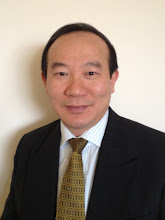There are two categories of
organs in TCM. The Zang, or Yin organs are the solid organs, and the Fu, or
Yang organs, are the hollow organs. Each Zang organ has a corresponding Fu
organ. All of the organs are interrelated in a complex network as described by
the Five Element Theory. (See ‘The theory of the five elements (Wu Xing)’
below)
The organs in traditional
Chinese medicine do not literally correspond to the anatomical organs of Western
medical science, such as the heart, liver or spleen. Instead, they are better
understood in terms of the functions they perform, which incorporate energetic,
emotional and spiritual aspects as well as physical. The meaning of the Chinese
organs is generally broader than that of the organs as understood by Western
medicine.
The Zang, or Yin Organs in
Traditional Chinese Medicine
The Zang, or Yin organs are the
‘solid’ organs, considered to be more vital. Their function is to produce,
transform, regulate and store.
- Liver: Considered to be the General of the body, the
liver stores the blood and directs the flow of blood and Qi (vital
energy). Regulation of the flow of Qi affects mood, digestion, bile flow
and menstruation. When the smooth flow of Qi is obstructed, it can lead to
emotional issues including anger and depression.
- Heart: Often called the ‘Emperor of the body’, the heart
rules over blood circulation and vessels, and controls sweating. Shen, the
mind or spirit, resides in the Heart, and is responsible for mental
processes, thinking, memory, sleep and dreams. Physically, the Heart of
TCM encompasses the heart, circulatory system and brain of Western
medicine
- Spleen: The Spleen regulates metabolism and assimilates
food, transforming it into blood and Qi. In addition, the Spleen is in
charge of keeping the blood in the vessels.
- Lungs: Taking in pure air and exhaling turbid air, the
Lungs control respiration and produce and govern Qi. They are closely
related to the Heart and aid in the circulation of the blood. Since the
Lungs are exposed to the exterior, they are particularly vulnerable to
external pathogens.
- Kidneys: The Kidneys are in charge of fluid metabolism and
the reproductive organs, and also rule the marrow, bones and teeth. They
store Jing, or Essence, an inherited substance that determines the
constitutional strength of each individual at birth. The Kidneys provide
the foundation of Yin and Yang for the body as a whole.
The Fu, or Yang Organs in
Traditional Chinese Medicine
The Fu, or Yang organs are the
‘hollow’ organs whose function is to hold, transport, break down and absorb.
- Gall Bladder: Paired with the Liver, and a Fu organ that is not
directly involved with processing food or drink, the Gall Bladder stores
and releases bile, a pure fluid. The Gall Bladder is in charge of making
decisions by giving courage and initiative to take action.
- Small Intestine: Paired with the Heart, the primary function of the
Small Intestine is to receive food from the Stomach and "separate the
pure from the impure," sending the useful nutrients to the Spleen and
passing the solid and liquid waste to the Large Intestine and Urinary
Bladder to be eliminated. The Small Intestine psychologically helps to
distinguish between what is right and true and what is not.
- Stomach: As the partner of the Spleen, the Stomach receives
food and is in charge of digestion, a process known in TCM as
"ripening" or "rotting." The Stomach has a descending
action, and conditions such as belching, hiccupping or nausea indicate
that Stomach Qi is not descending properly.
- Large Intestine: The partner of the Lungs, the main role of the
Large Intestine is to reabsorb water and eliminate waste. This is
analogous to the Lungs' function of extracting what is beneficial from the
air and expelling what is harmful. The Large Intestine is associated with
the ability to let go of that which is unnecessary, both in a physical and
emotional sense.
- Urinary Bladder: Paired with the Kidneys, the Urinary Bladder helps
to regulate fluid metabolism by receiving, storing and excreting urine.
As the organs of TCM theory
generally describe the processes outlined above, rather than the physical parts
of the human body, TCM diagnosis involving these organs does not necessarily denote
an issue with the physical organ itself. For example, ‘Liver Qi stagnation’
does not necessarily mean that there is something wrong with the livers of the
human body; nor does ‘Kidney Yang deficiency’ necessarily suggest dysfunction
or an issue with the physical kidneys.

